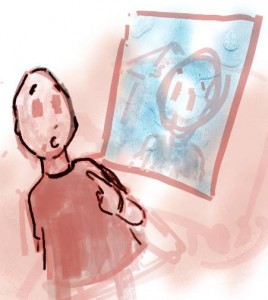 Bahamians are a sensitive lot when it comes to identity. I am one of the foremost sufferers from this anxiety of being. This comes from my mulatto / mangra / light brown skin.
Bahamians are a sensitive lot when it comes to identity. I am one of the foremost sufferers from this anxiety of being. This comes from my mulatto / mangra / light brown skin.
As it stands the Bahamian identity is constructed as black, ghetto and male. This construction ignores, deliberately I believe, the 20 percent or so of the country that happen to be white. I have inadvertently asked a few white Bahamians “so, where are you from?” It’s polite conversation with a tourist but it’s the surest, most direct way to insult a native.
To be called white in the Bahamas is another way to say that you do not belong. Those who don’t belong are tourists. Visitors. Just passing through. Seaweed. Driftwood. In Nassau the quickest insult is usually to call me “white boy”. Hit a shot on the basketball court and I will hear “buhy! You let white-boy-archah score on you” or something to that effect. They know that I’m not white, but my skin-color places me in a liminal space. I’m not white, but to their minds I’m not black enough.
This color line is tricky. It’s no where near as rigid as the “one drop” rule that governs blackness in the United States. The Bahamian black/white line is a fluid boundary that varies in different islands and even in different settlements / villages on the same island. For example on the same island of Eleuthera, I am read as black in Tarpum Bay and white in Lower Bogue.
I self-identify as black. This is simply because I also self-identify as Bahamian. And to be Bahamian means that you must be black. Now there are myriad ways of performing blackness in the Bahamas, so even if you don’t have the correct pigmentation, you can find other ways to fit in, but lets leave it there for now.
Fast forward to Canada and here I am read without question as black. Now, the Canadian identity, crudely put, is a young white man brandishing a hockey stick in one hand, and a cup of Tim Horton’s Coffee in the other. He says “eh?” in between sips and ice-checks. Now with my Bahamian baggage already in tow, you can understand why I reject the label of Canadian. The Bahamian identity I want to hold on to won’t allow it. But my presence here has begun to complicate who I think I am; two recent experiences come to mind.
The first happened at a writers retreat over the summer in Trinidad. On the first day of the workshop, as the introductions went around the room I mentioned that I was a Caribbean person in exile in Canada. There was shock from the organizers. How could I, a member of the Caribbean diaspora, have made it into the program they asked? The workshop was only open to people from the Caribbean and not to people who came from elsewhere.
Surely, I thought, they must be joking. I have only been in Canada for five years, and this only to study at University. I hold nothing more than a study permit. Surely they can’t take my Caribbean-ness, my blackness away from me for this? Yet, they did. I protested and argued that I surely was not a Canadian, but the label stuck. Much to my chagrin.
The second experience happened a couple of weeks ago, at the MA student orientation in Canada. A white first year MA student says to me with a mischievous gleam in his eye,”you know a word that I like to throw out in my tutorials… Nigger.” The air was suddenly sucked out of the room. Needless to say I was taken back. I had never seen the “N-word” so close before. I really didn’t know what to say. He wasn’t directly calling me a N… of course, but he knew what he was doing.
My own shock took me by surprise, especially since the word in both Bahamian creole and Haitian creole translates as the politically / racial neutral “man.” So, yes, “white niggers” do appear in Bahamian creole, although the speaker will most likely correct themselves afterwards. In Haitian creole there would be no correction. Was I offended? Or did I merely want to be offended?
I give you all of this because I’ve been thinking a lot about identity recently. It’s the first and most important question you need to ask yourself: Who am I? Honestly I’m not sure any more. After studying theories of nationalism and seeing first-hand the artificialness of national identities, I can clearly see how these “imagined communities” are more at the service of the state than anything else and have little basis in reality.
Through my study of Eastern thought I see what they mean when they talk about identity as “maya” / illusion. When I look in the mirror, what do I see? Do I see what I want to see? Can I only see the story that I am telling myself about myself: My name is, I was born in, I am. Can I even see myself anymore? Have I ever really seen myself?
Leave a Reply